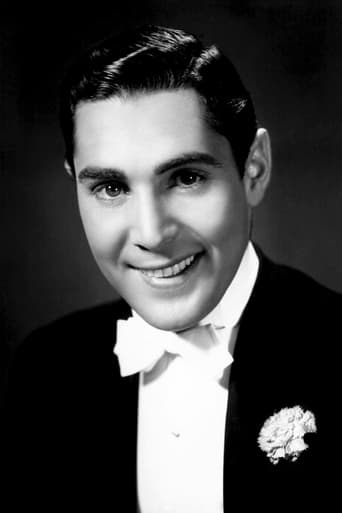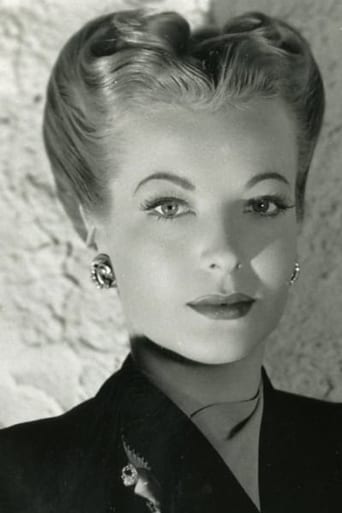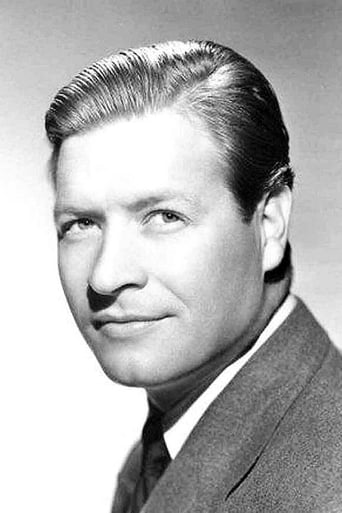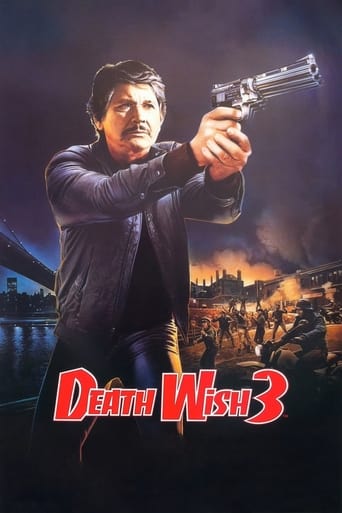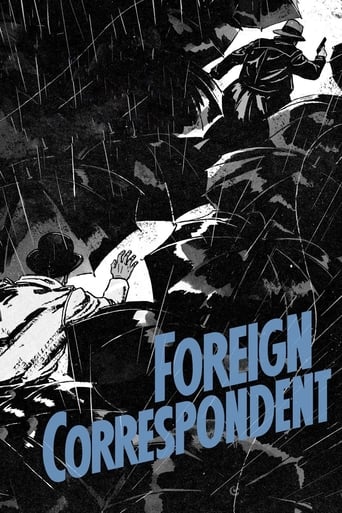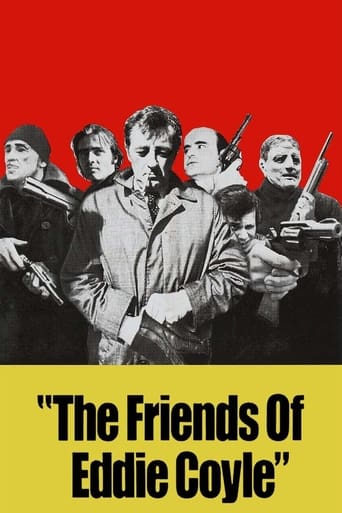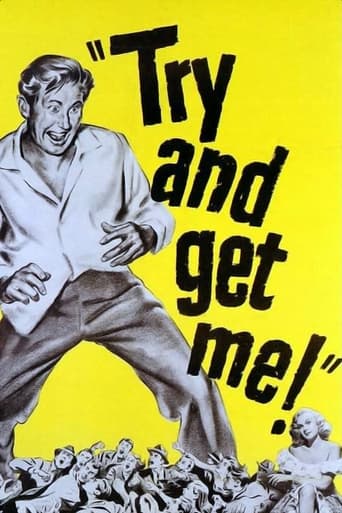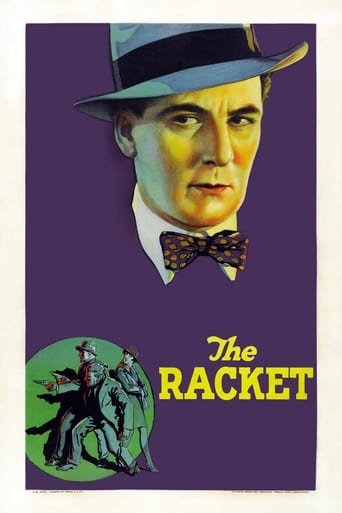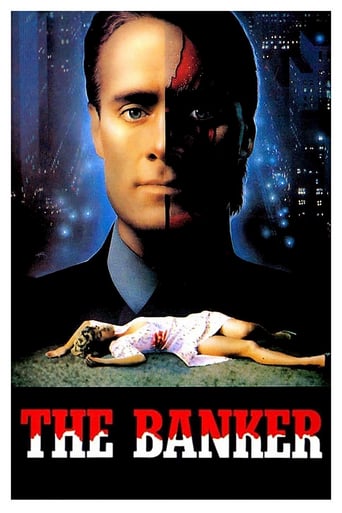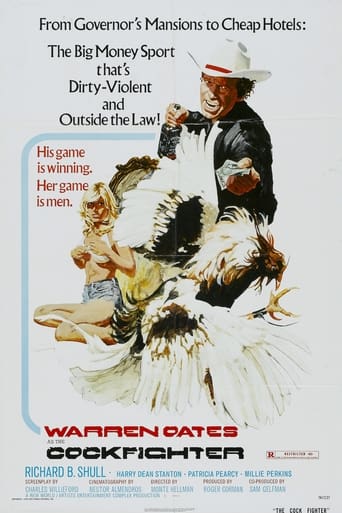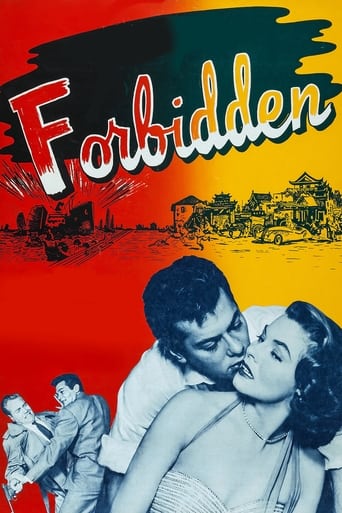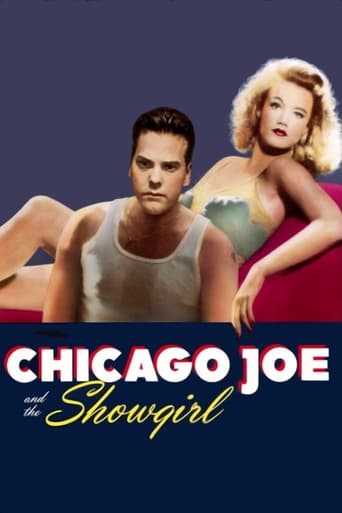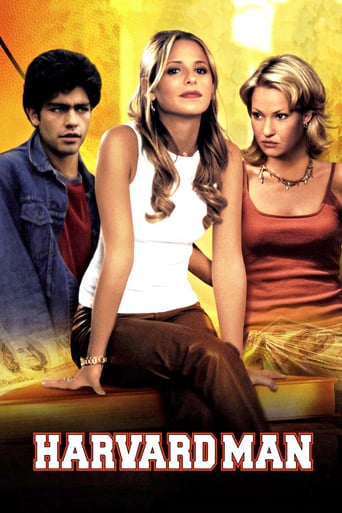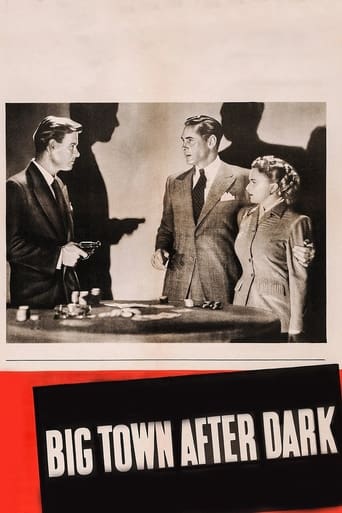
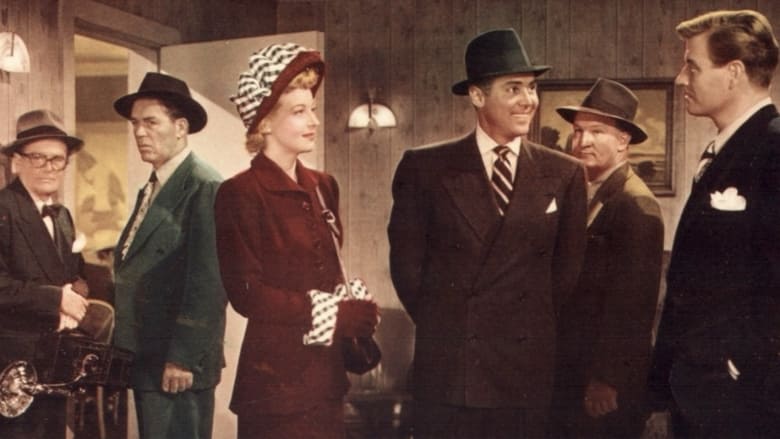
Big Town After Dark (1947)
A crusading newspaper reporter battles big-city gambling interests.
Watch Trailer
Cast


Similar titles
Reviews
"Big Town After Dark" is a decent B-movie from tiny Pine-Thomas, a company known for its mediocre and sub-par Bs. Fortunately, this is one of the better films they made.Steve (Phillip Reed) is the managing editor of a newspaper. His day is looking pretty glum when his star reporter, Lorelei (Hillary Brooke) announces she's quitting to become a literary writer. He's desperate to keep her there...but he has another problem to deal with...his boss wants him to hire the niece...and she has no experience at a newspaper. Then Steve gets an idea....use the boss' niece to try to keep Lorelei with the paper. Little did he know that this would NOT be a particularly good idea!This film has a lot of noir elements--the nasty bossman who runs the town and a local gambling den, folks getting the snot knocked out of them and murder! Well worth seeing and an interesting story once it got going.
What starts off as what seems to reporter Philip Reed's attempt to keep resigning reporter Hilary Brooke from leaving by bringing another female reporter on to take her place ends up being a complex crime drama about the goings on behind the scenes in a crooked gambling joint. Sweet Ann Gillis isn't quite whom she seems to be, bringing intrigue and danger into a newspaper office. The lighthearted banter of the first half becomes surprisingly overly complex as details surrounding Gilli's come to light and leads Reed down seriously dangerous trails in his efforts to expose the crooked ring. Almost as witty as the sardonic dialog between Cary Grant and Rosalind Russell in "His Girl Friday" ends up on the other side of the spectrum, giving this B entry into the brief "Big Town" series as close a resemblance to film noir as the series would get. It ain't bad, but a few head scratching moments may make you think that you ended up taking the wrong road off the detour.
A typical reporter crime movie. As usual, there is a crack female reporter and her sidekick, the guy she loves, who's having to go it alone. Enter a little 21 year old femme fatale who plays the innocent and disrupts things. She is trouble from the start, but the blinders are on and she manages to work things up. She has connections to a gang that runs a gambling palace in Big Town. Anyway, this is pretty much what you would expect. There are misleading clues, bad judgments, sloppy reporting, just plain carelessness. It's interesting how these guys get themselves into life and death situations and don't bother to have any backup. Suffice it to say, even though the big lug has a fixation on this little woman, it's the rock solid older woman who pulls him back to his senses. Unfortunately, he ends up in the hospital in the process. A decent film, but no new territory.
"Big Town", a shallowly disguised New York City, is of importance in a number of modes for popular United States culture, initially being a radio programme from 1937 until 1962, then on to television episodes, 1952/1956, and eventually as a comic book series, 1956/1958, with the protagonist in each manifestation being Steve Wilson, originally a reporter working for the Big Town Illustrated Press, later becoming its editor-in-chief, and played in this, the third of four films based upon the radio show, by Philip Reed who is featured in all of the four. In the production here, Wilson's almost girl friend and ace crime reporter Lorelei Kilbourne (Hillary Brooke), after her first novel has been accepted for publication, gives him two weeks notice of her resignation from her newspaper position but, to her chagrin, she is almost immediately replaced by the Illustrated Press owner's niece Susan (Anne Gillis), who by appearances also wedges herself into Steve's affections, although in reality he is using her to discover information of crooked Big Town activity involving an illegal gambling ring that preys upon college students. Susan is possibly not what she appears to be, and while Steve explores the girl's connection with local gambling kingpin Chuck LaRue (Richard Travis), owner of the Winners' Club, a night spot for gambling that is near to the campus where Susan attends, Lorelei also investigates her new rival's activities, with her efforts yielding more than she has expected, as all three of them may be in serious peril from the Forces of Evil. This is better than a routine "B" programmer, as it provides some incisive and hard bitten dialogue, a clever subtext based upon poker playing, and a generally edgy quality pervading the characterizations that lifts the work above the norm and, in spite of budget restrictions that rule out retakes, and a necessity for filling demands of its melodrama genre, there is plenty of "business" for a viewer to enjoy. Reed and Brooke make an elegant and worldly pair, veteran character players William Haade and Joe Sawyer perform as LaRue henchmen, and Vince Barnett has a substantial part in this Pine/Thomas production with producer William Thomas also directing and capably utilizing a crisply composed Whitman Chambers script in an always interesting, skillfully edited, briskly paced and well-cast film that additionally includes an effective original score by Darrell Calker, Gotham flavoured, of course, although the extensive location shooting is along Normandie Avenue on the east side of Hollywood.


